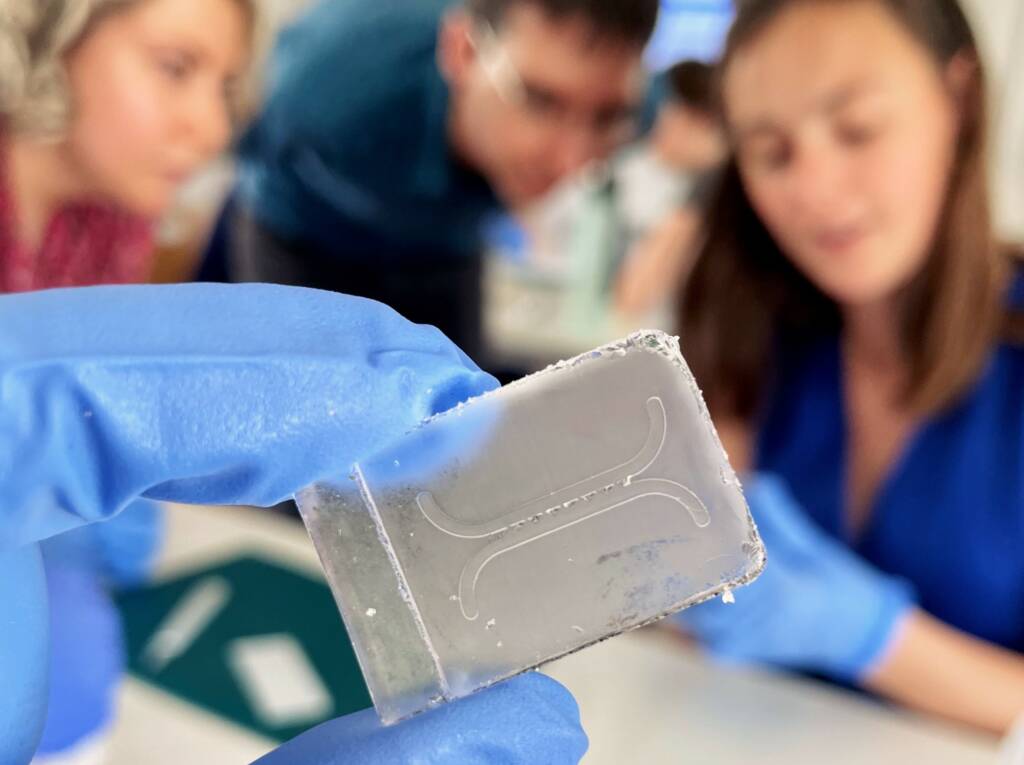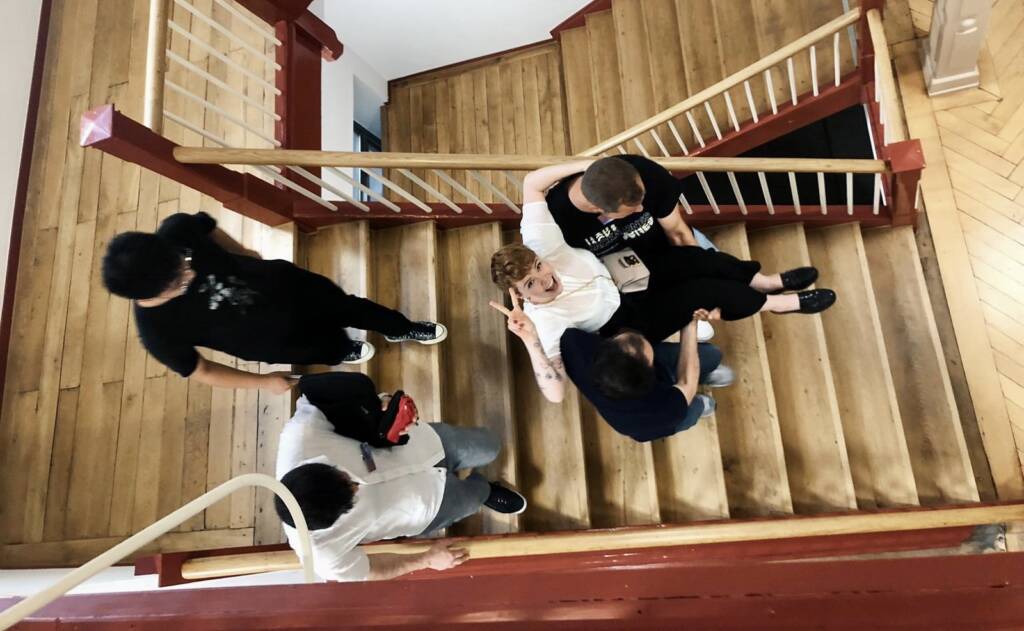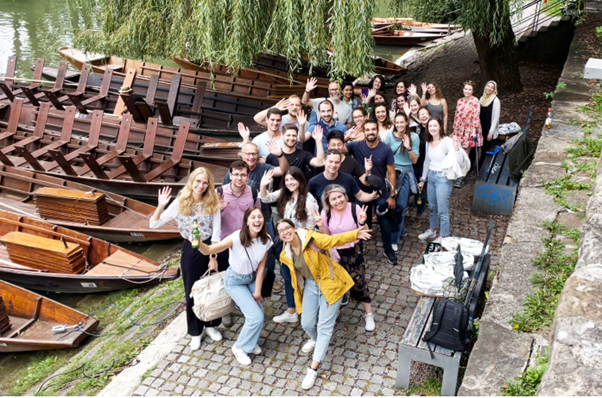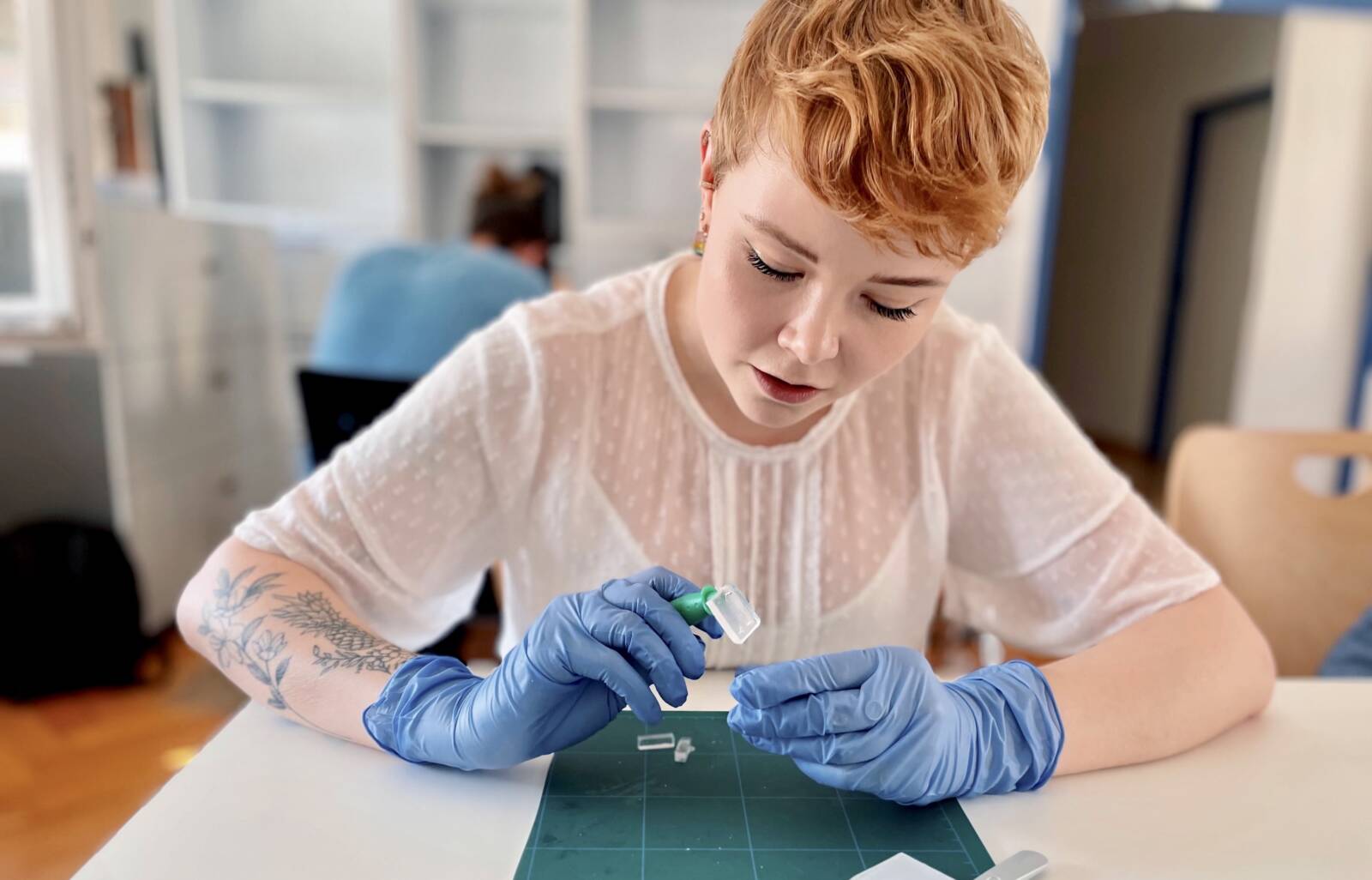In September 2023, I had the privilege of participating in the first EUROoCS Summer School held in the picturesque city of Tübingen, Germany. The summer school was organized by the EUROoCS working group “Teaching & Training” in collaboration with the 3R-Center Tübingen for In vitro Models and Alternatives to Animal Testing. This five-day training course immersed us, two dozen undergraduate students and doctoral researchers from various corners of Europe, along with representatives from the United States and South America, in lectures and hands-on laboratory sessions, providing a thorough exploration of Organ-on-Chip (OoC) technology.
From theoretical knowledge to tangible skills
One of the Summer School’s key features was the blend of lectures and sessions from both biological and engineering perspectives. The interdisciplinary curriculum covered multiple aspects of OoC technology, ranging from organoids and biomaterials to regulatory processes and GCCP (good cell and tissue culture practices). For example, we enjoyed lectures on microfabrication by Marie Tenje from Uppsala University, while Torsten Mayr from Graz University of Technology gave us a glimpse into the world of different sensors. This diversity in expertise mirrored the varied backgrounds of the participants, ensuring that every attendee, regardless of their academic background, encountered a balanced mix of familiar concepts and novel insights.
Every morning started with a series of lectures at our accommodation, the Youth Hostel Tübingen. The lecturers represented institutions across Europe and offered us insights not only about the aspects of OoC technology but also its practical applications.
After lunch, we made our way through the city center to the 3R center to participate in the hands-on sessions. We delved into the world of hydrogels, crafted and bonded our own microfluidic devices, and followed the formation of stem cell derived embryoid bodies.

As a devoted cell biologist, stem cells and organoids have always been my favored subject in this field. However, the Summer School introduced me to something new when Andries van der Meer from Twente University delivered a captivating talk on fluid dynamics. This led me to be fascinated by the intricate physics behind microfluidics, sparking a curiosity to explore them more in the future.
Beyond the academic rigor
Outside the classrooms, the EUROoCS Summer School offered us great opportunities to unwind and connect with fellow researchers. One such event was the Summer School Dinner hosted at the brewery and restaurant Freistil.
Unfortunately, instead of indulging in the culinary delights of the local brewery, I found myself in the emergency room of the University Hospital Tübingen. A swift X-ray revealed the result of me missing a step while walking through the corridors earlier that day – I had broken my leg.
Luckily, the kindness of my fellow attendees ensured that, even with a cast on my leg, I could participate in most activities. They drove me to the hospital, made sure to help me with my lunch, and even carried me to the lecture halls in the old and beautiful, albeit elevator-less, building.

Thanks to their support, I could fully enjoy this trip, including the non-academic events. Undoubtedly, one of the highlights of the extracurricular activities was the punt boat tour on the Neckar River. This beautiful excursion offered a scenic, although slightly wet, perspective of Tübingen, with its charming architecture and landscapes.
Reflections on the Summer School
The beautiful setting of Tübingen, coupled with the rich diversity of participants, created an environment where academic excellence, a range of perspectives, and international collaboration seamlessly came together. As I reflect on this experience, I am left with not only a fresh motivation to continue my work as a researcher and expand my horizons but also a network of connections that spans the globe.
One could say that my personal experience, including the unfortunate setback, highlighted the importance of collaboration and adaptability in research, mirroring the ethos of the Summer School itself.


